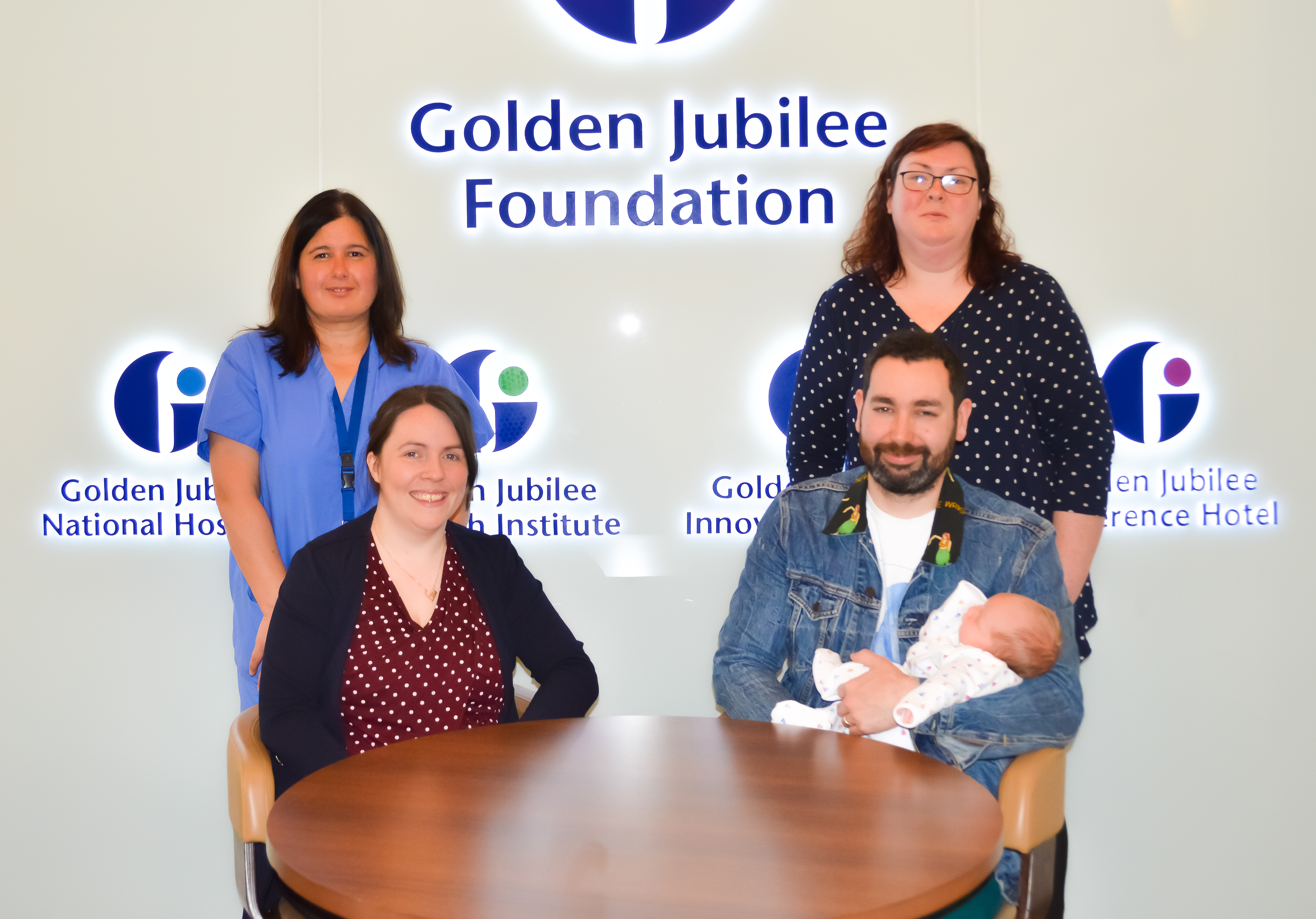
(L-R): Consultant Anaesthetist Isma Quasim, Steph, Duncan and little Rex Rainey and Charge Nurse Annette Asher
Specialist staff at the Golden Jubilee National Hospital welcomed an extra special visitor last week thanks to a unique aftercare programme.
Six-weeks-old Rex Rainey was accompanied by grateful dad Duncan, who was treated for a cardiac arrest at the Jubilee, and miraculous mum Steph - who helped save Duncan’s life.
Proud staff are delighted little Rex is the first baby to be born from a patient attending the Golden Jubilee’s InS:PIRE (Intensive Care Syndrome: Promoting Independence and Return to Employment) programme since its inception three years ago.
Duncan collapsed from cardiac arrest at home in Glasgow last March and is lucky to be alive today after wife Steph gave him CPR while awaiting an ambulance.
The 35-year-old spent five days in the Clydebank facility’s Intensive Care Unit (ICU) and a further five in the Coronary Care Unit (CCU) before having a defibrillator fitted.
“I don’t think I would be here today if it wasn’t for a series of things,” said Duncan. “First, Steph was there to give me CPR and there was an ambulance crew close by who got to me quickly.
“The emergency doctor who was called out then argued for me to be sent to the Jubilee as this was a specialist unit and I think that decision kept me alive.
“But being able to come back to the InS:PIRE Cohorts really has helped my recovery. It helps you understand what you’ve been through better and get that peer support from people who’ve been through the same, as well as the medical care and advice you get.
“I honestly think it has helped me recover better and with Rex coming along it has really just made everything perfect.”
Another major plus for Duncan is that he has been able to return to work as an assistant manager with a supermarket chain, which InS:PIRE is designed to help with.
The programme focuses on the social issues and hardships patients may face which traumatic experiences like a heart operation can cause. Difficulties can be physical, psychological or even financial for the patient or their family members.
InS:PIRE aims to give intensive care patients and caregivers the best chance of rehabilitation and return to normal life and work through follow-up clinics with health professionals and peer support with other patients who have been through similar experiences.
Isma Quasim, Consultant Anaesthetist, said: “We were just delighted to see little Rex as he is our first ‘Inspire Baby’.
“The programme has been a great success and the feedback we have received from patients like Duncan is that it has made a profound difference to their lives after a major cardiac episode.
“Speaking to the patients does help us too as we’ve changed a lot of our working practices based on the feedback.
“It’s also great for staff who never see patients again after treating them. It’s a huge thing to see a young man like Duncan, who was in such a catastrophic state, to come back here with a baby, back to work and life back to normal a little over a year later. We never usually see that so it’s a massive lift for staff.”
“We have a duty of care to try and return patients and their families to as good a level as we are able following their critical care stay.
“Some patients can experience extreme difficulties after discharge and what makes InS:PIRE different from other ICU follow-up clinics is the importance placed on peer support and person-centred care.”
News Archive
Please browse through our Academy, CfSD and Hotel Press releases.


